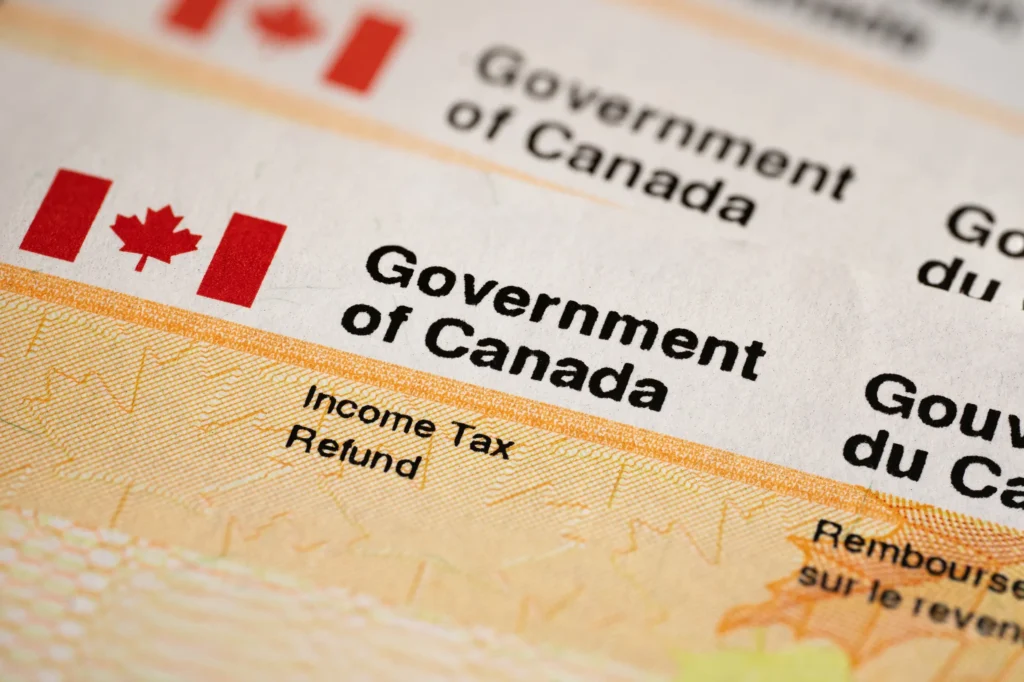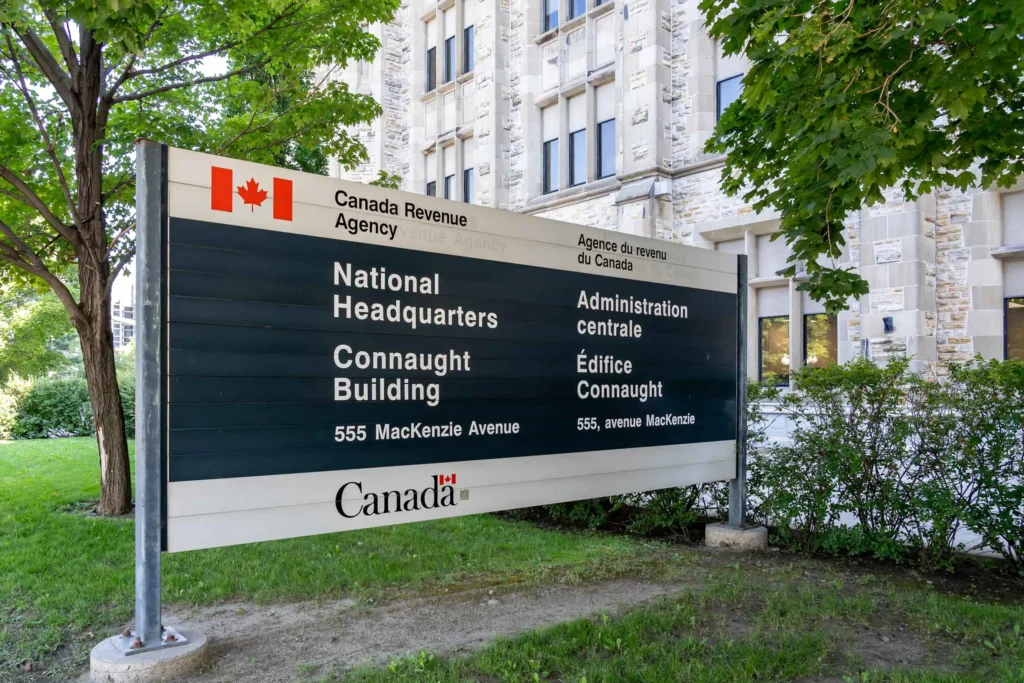Leaving Canada Permanently is becoming an increasingly common choice for many. In 2024 alone, over 81,000 individuals made the decision to leave Canada permanently, a significant figure that highlights a growing trend of Canadian emigration. The motivations behind this shift vary, but the most common reasons include economic challenges like the cost of living crisis, better career opportunities abroad, and, perhaps most notably, tax considerations.
The rapidly increasing trend of moving from Canada includes not only Canadian citizens but also recent immigrants looking for more favorable conditions abroad. Becoming a non-resident of Canada comes with legal, tax, and logistical implications that require careful consideration and advice from experts.
As global mobility becomes a key issue for many, Harvey Law Group (HLG) offers great experience in international relocation, immigration law, and cross-border planning. Our team of experienced immigration lawyers and global mobility experts helps clients navigate the often complex process of obtaining residence or citizenship in popular destinations such as Portugal, the Caribbean, and Asia.
The Canadian Exodus: Why People Are Leaving Canada
Canada has traditionally been viewed as a country that offers both Canadian nationals and immigrants great opportunities, stability, and a high quality of life. However, in recent years, that perception has changed for many. In 2024, people made the decision to leave Canada permanently, in what has become known as the Canadian exodus.
The most common reasons stated for leaving Canada were; unaffordable housing in major cities such as Vancouver or Toronto and wage stagnation that failed to keep pace with inflation. Canada is also experiencing increased taxation alongside a decrease in the quality and availability of public services.
At Harvey Law Group (HLG), we specialize in helping individuals and families understand their options and make informed decisions about leaving Canada permanently. Our experienced team of immigration lawyers and global mobility experts can provide wide ranging support for those considering emigration from Canada.
What Becoming a Non-Resident Really Means
A non-resident is an individual who has left Canada to live elsewhere and no longer has significant residential ties to Canada. Once the individual is mainly living outside Canada, Canadian authorities may officially classify them as a non-resident for tax and legal purposes.
Canadian non-residency is based on several factors, including the length of time spent outside Canada, the location of the individual’s primary residence, and the potential removal of any residential ties such as a home, a spouse or dependents remaining in Canada, and personal property.
It is important to remember that each situation is unique and is considered on a case-by-case basis. Our at HLG team includes Canadian lawyers who are now non-residents themselves, bringing firsthand experience and knowledge about the process to help provide accurate and up to date advice.
Please note, non-residency status is determined by residency factors, not by citizenship.
For example, a Canadian who moves abroad for work or retirement and establishes a home in another country may be considered a non-resident for tax purposes. If this is the case, they would generally only be taxed in Canada on income from Canadian sources and would no longer file a regular Canadian tax return, but instead a non-resident return (if required).
Read Also: Which Are the Most Affordable Golden Visa Countries in 2026?
A Canadian non-resident is usually required to report and possibly pay tax on income earned from Canadian sources, such as rental properties or investments. However, someone who only spends part of the year abroad, such as spending a couple of months during the winter in Florida to avoid the cold, may still be considered a resident if they retain strong ties to Canada. However, those who fully relocate and no longer have any residential connections are more likely to be classified as non-residents.
Advantages of Establishing Non-Residency When Leaving Canada Permanently
A Canadian resident who relocates from Canada and establishes non-residency can take advantage of several important financial and legal benefits. By officially obtaining non-resident status, individuals can simplify their tax obligations and avoid being taxed on their worldwide income by Canada. Instead, non-residents will usually only be subject to Canadian taxes on income earned from Canadian sources, such as rental properties, pensions, or investments.
Non-residency may also help remove the requirement of filing annual Canadian tax returns and remove double taxation issues, especially if a tax treaty exists between Canada and the new country of residence.
As well as simplifying Canadian obligations, establishing non-residency allows individuals to take advantage of the benefits available in their new country of residence. For instance, securing a Golden Visa in certain EU countries may grant residency rights, access to public services, and free movement across the Schengen Area. Some countries also offer favorable tax regimes for new residents and access to high-quality healthcare and education systems.
Common Misconceptions and Concerns About Becoming a Non-Resident
Many Canadians who are considering a move abroad often hesitate due to common misconceptions and fears surrounding the non-residency process. One of the major concerns is the belief that they will lose their Canadian citizenship, which is not the case. Citizenship and residency are entirely separate.
Another frequent misunderstanding is that becoming a non-resident is a very complex or irreversible process. However, with proper planning, residency status can be re-established in the future if the individual returns to live in Canada.
Read Also: Leaving Canada? In-Depth Guide to Canadian Tax Residency Rules by Immigration Lawyers
The Canada departure tax
Another misconception is that becoming a non-resident means being subject to penalties for leaving, i.e. the departure tax. It is important to note that the departure tax only applies to specific assets and can often be deferred or reduced with professional advice.
Understanding the CRA’s Confusing or Misleading Guidelines on Non-Residency
One of the biggest challenges Canadians face when considering non-residency is understanding the Canada Revenue Agency’s (CRA) guidelines on the process. These guidelines are considered by many to be overly complex and unclear.
While the CRA provides general criteria, such as the definitions and requirements for residential ties and time spent in Canada, many of the rules are open to interpretation, leading to confusion about whether an individual will actually qualify as a non-resident. Terms like “significant residential ties” can be vague, and the lack of clearly defined thresholds can cause confusion for those interested in obtaining non-residency.
Another issue is that the CRA’s language may lead individuals to believe that maintaining any connection to Canada, such as owning property or visiting family, automatically disqualifies them from non-residency status. However, in reality many non-residents who have already emigrated from Canada still have small ties with Canada and don’t face any issues, as long as their primary residence, daily life, and financial interests are located abroad.
We invite you to read this article: Exiting Canada: Legal Exit Guide for 2026
Key Steps to Becoming a Non-Resident
Becoming a non-resident of Canada involves more than simply leaving Canada and moving abroad, it requires the individual to follow a set process. This process is to ensure that the Canada Revenue Agency recognizes the change in tax status and avoid issues such as double taxation etc.
The first step is to become a non-resident of Canada, the individual has to physically leave Canada and establish residency in another country and obtain legal residency status (such as having a visa or residency permit).
The next step is to sever your primary residential ties. This includes selling or renting out your Canadian home, relocating your spouse and dependents (if applicable and truly necessary), and moving some of your personal possessions out of Canada.
Secondary ties such as Canadian bank accounts, driver’s licenses, health cards, and professional memberships should either be closed, transferred, or updated to reflect your new country of residence.
Before leaving Canada, individuals must inform the CRA of their plans to emigrate by filing the appropriate forms, such as the NR73 or by indicating the departure date on the individual’s final tax return.
Those who plan to move from Canada should note that they may be subject to departure tax on certain assets. However, the full liability or amount of departure tax owed will vary depending on the individual’s financial situation.
Read Also: Deemed Disposition Canada: Complete Legal Guide
Where Canadians Are Relocating: Top Destinations
For Canadians who are considering emigration, their top choices are those that offer economic advantages, career opportunities, and favorable tax environments. The following are the current top choices, favored by those who are considering moving from Canada:
The United States
The US currently remains the top choice, attracting around 38% of Canadian emigrants. Its geographic proximity to Canada allows for easy travel back home when needed, the US also has a stronger job market and many US based jobs offer higher wages than the equivalent in Canada. There is also a generally lower tax burden in many U.S. states as well.
Immigration options like the EB-1, EB-2, and National Interest Waiver (NIW) visas make it possible for skilled professionals and entrepreneurs to establish themselves south of the border with relative ease.
New Zealand
New Zealand is also becoming a promising destination for high-net-worth individuals.
In 2024, New Zealand introduced the Active Investor Plus Visa, aimed at attracting international investors seeking permanent residency. Within the first two weeks of its launch, the program received 44 applications, which resulted in NZD 77 million in committed capital for New Zealand.
Recent updates, effective from April 2025 introduced the following options for applicants:
- Growth Category: A NZD 5 million investment over 3 years into NZTE-approved direct investments or managed funds.
- Balanced Category: A NZD 10 million investment over 5 years into a diversified portfolio, including bonds, listed equities, and qualifying property development
Hong Kong
Hong Kong attracts approximately 11% of Canadian emigrants. Its position as a global financial hub offers many career opportunities, and a lower tax environment, making it attractive for finance and business professionals.
Read Also: Hong Kong Seeks Talents | Apply for the Top Talent Pass (TTPS) NOW
Portugal
Portugal is quickly becoming a popular choice for Canadians, largely due to its highly attractive Golden Visa program. The Golden Visa offers EU residency and free movement within the Schengen Area.
Portugal also offers relatively affordable real estate, excellent healthcare, and tax incentives through the Non-Habitual Resident (NHR) program.
How Harvey Law Group Can Help
At Harvey Law Group (HLG), our Canadian immigration lawyers and global mobility experts understand that emigrating from Canada is a major life decision and involves careful legal, financial, and logistical planning.
Whether you’re leaving Canada for better career prospects, lifestyle improvements, or tax reasons, our team of immigration lawyers and global mobility experts are available to provide you assistance and guidance to make sure you make the best decision for your needs and requirements. Notably, some of our Canadian lawyers are now non-residents themselves, bringing firsthand experience with the process and an understanding of the practical and legal considerations involved.
Our process will begin by assessing your individual situation and needs to determine the best options for establishing non-residency in Canada. This includes advising on how to properly sever both primary and secondary residential ties, and ensuring that you satisfy all of Canada’s Revenue Agency (CRA) requirements.
HLG also offers a wide range of experience and knowledge relating to the immigration programs of top destination countries, including the United States, Portugal, the UAE, and others. From visa options to permanent residency or citizenship opportunities, such as the Golden Visa or Residency by Investment programs, HLG can help you secure a new residency abroad.
With offices in 15 countries, our global presence allows us to provide continuous support even after you’ve relocated. If you’re part of the growing number of people leaving Canada and considering your options as a non-resident of Canada, Harvey Law Group can provide you with the information you need to make an informed decision.
Conclusion
For many Canadians, leaving Canada permanently is a carefully thought out plan made in response to economic reasons, professional goals, and personal needs.
Whether the rising cost of living is becoming a problem, looking for new career opportunities or the need for a different lifestyle, the decision to emigrate is becoming an increasingly common choice for people around the world.
However, making the move requires careful planning and expert guidance to make sure the emigration process is completed in full compliance with Canadian and international requirements. From understanding what non-resident status is and requires, to choosing the right country and immigration option, the process can be complex. At Harvey Law Group, we’re here to help. Our team of immigration lawyers and global mobility experts is ready to provide a personalized assessment of your situation and offer you assistance to help find the best option for you.
If you’re considering emigration from Canada, contact us today to learn more about your options.
FAQ
Will I get hit with a huge departure tax bill if I leave Canada permanently?
The departure tax isn’t as scary as it sounds, but it can be significant if you’re not prepared. Canada’s departure tax applies to certain assets when you become a non-resident, creating a ‘deemed disposition’ – essentially treating your assets as if you sold them. However, this tax can often be deferred or reduced with proper planning. In 2024, over 81,000 Canadians successfully left the country, and many avoided massive tax bills through strategic planning. Harvey Law Group’s Canadian lawyers who are now non-residents themselves can help you understand your specific situation and explore options to minimize or defer this tax burden. The key is getting expert advice before you make the move, not after.
Do I lose my Canadian citizenship if I move abroad permanently?
Absolutely not! This is one of the biggest misconceptions Canadians have about emigration. Citizenship and residency are completely separate things. You can live anywhere in the world for as long as you want and keep your Canadian citizenship and passport. Canada recognizes dual citizenship, so you can even become a citizen of another country while keeping your Canadian status. What changes is your tax residency – not your citizenship. Harvey Law Group helps thousands of Canadians understand this crucial distinction. Our team includes Canadian lawyers who left Canada themselves but remain proud Canadian citizens living abroad. The key is properly establishing non-resident status for tax purposes while maintaining your citizenship rights.
How do I actually become a non-resident of Canada for tax purposes?
Becoming a Canadian non-resident requires more than just packing your bags – it’s about severing your residential ties systematically. You need to establish a primary residence abroad, obtain legal residency status in your new country, and cut your primary ties to Canada (sell or rent your home, relocate family members). Secondary ties like bank accounts, driver’s licenses, and health cards should be closed or transferred. The CRA looks at your entire life situation, not just where you physically are. Many Canadians get this wrong and end up being considered residents for years after leaving. Harvey Law Group’s global mobility experts have guided thousands through this process successfully. Our Canadian lawyers who’ve personally gone through emigration understand exactly what the CRA requires and can ensure you don’t miss critical steps that could cost you thousands in unnecessary taxes.
What’s the best country for Canadians to move to right now?
The ‘best’ country depends on your specific goals, but data shows clear favorites among the 81,000+ Canadians who emigrated in 2024. The United States attracts 38% of Canadian emigrants due to proximity, higher wages, and lower taxes in many states. Portugal is increasingly popular for its Golden Visa program offering EU residency and the Non-Habitual Resident tax benefits. The UAE offers zero personal income tax and modern infrastructure, while New Zealand’s new Active Investor Plus Visa attracted NZD 77 million in just two weeks. Hong Kong remains strong for finance professionals. Harvey Law Group has offices in 15 countries and specializes in the most popular Canadian emigration destinations. Our global mobility experts can assess your specific situation – whether you’re escaping Canadian housing costs, seeking better career opportunities, or optimizing your taxes – and recommend the best pathway for your circumstances.
Can I keep my Canadian bank account and credit cards if I become a non-resident?
This is a nuanced area that many Canadians get wrong, potentially affecting their residency status. You can keep some Canadian financial accounts as a non-resident, but it requires careful planning. Most major banks offer non-resident banking services, but you’ll need to inform them of your status change. Keeping too many accounts or maintaining them as if you’re still resident can signal to the CRA that you haven’t truly severed ties. The key is being strategic about which accounts serve a legitimate purpose for your new non-resident status versus which ones suggest ongoing residential ties. Harvey Law Group helps clients navigate these banking transitions properly. Our lawyers understand exactly how financial account decisions impact your non-resident status and can advise on maintaining the banking relationships you need while ensuring CRA compliance.
What happens to my healthcare coverage if I leave Canada permanently?
Your provincial healthcare coverage typically expires when you establish non-residency, but the timeline varies by province. Most provinces provide coverage for 2-3 months after you leave, giving you time to establish healthcare in your new country. You should cancel your health card as part of severing ties – keeping it when you’re no longer eligible can actually hurt your non-resident status. However, many destination countries offer excellent healthcare options. Portugal provides access to EU healthcare systems, the UAE has world-class private healthcare, and many countries offer comprehensive health insurance for residents. Harvey Law Group’s global mobility experts help clients understand healthcare transitions for each destination. We work with international health insurance providers and can advise on the best healthcare strategies for your new country of residence.
I’m tired of Canadian winters and high cost of living – where should I move for better weather and affordability?
You’re not alone – weather and cost of living are driving thousands of Canadians abroad in 2024. For warm weather and affordability, popular choices include Portugal (excellent weather, 70% lower housing costs than Toronto/Vancouver, plus Golden Visa opportunities), Mexico (growing Canadian expat communities, significantly lower costs), and parts of the UAE (year-round warmth, zero income tax, modern infrastructure). Spain offers similar benefits to Portugal with its Golden Visa program. Even within these countries, your money goes much further than in Canada’s major cities. A Toronto couple paying $4,000+ for a two-bedroom condo could get a beautiful home with a pool in Portugal for less. Harvey Law Group specializes in helping Canadians make these lifestyle-driven moves successfully. Our team can show you the real costs, tax implications, and residency pathways for warm, affordable destinations that welcome Canadian emigrants.
Do I still have to file Canadian tax returns after I become a non-resident?
As a true non-resident, you generally won’t file regular Canadian tax returns anymore – this is one of the major benefits of properly establishing non-resident status. However, you may need to file non-resident returns if you have Canadian-source income like rental properties, pensions, or investment income. The key word is ‘properly’ establishing non-residency. Many Canadians think they’re non-residents but the CRA still considers them residents, meaning they’re stuck filing returns and paying tax on worldwide income. This is where proper planning makes a huge difference. Harvey Law Group ensures clients establish clear non-resident status from day one. Our Canadian tax and immigration lawyers can review your situation and confirm whether you’ll have ongoing Canadian filing requirements, helping you understand exactly what your obligations will be in your new simplified tax situation.
Can I rent out my Canadian house instead of selling it when I emigrate?
Yes, you can rent out your Canadian property as a non-resident, but this decision has important tax and residency implications you need to understand. Keeping a house doesn’t automatically disqualify you from non-resident status, especially if it’s clearly an investment property rather than a maintained residence. However, you’ll pay non-resident withholding tax on rental income (typically 25%, though this can be reduced with proper elections), and the property remains a tie to Canada that the CRA will consider. Many successful non-residents keep Canadian rental properties – it can be a smart investment strategy. The key is ensuring the property is clearly treated as an investment, not a residence you could return to. Harvey Law Group helps clients structure their property holdings properly for non-resident status. Our lawyers can advise on the tax elections, property management arrangements, and documentation needed to maintain rental properties while establishing clear non-resident status.
How long does it take to become a non-resident of Canada officially?
Non-residency isn’t an official status you apply for – it’s determined by your circumstances and actions. You can become a non-resident as soon as you establish residence abroad and sever your Canadian ties, which could be immediately upon landing in your new country if done properly. However, the CRA evaluates your situation based on the facts, and they may look at your entire first year abroad to determine when non-residency truly began. Some people achieve clear non-resident status within weeks, while others who don’t properly sever ties remain Canadian residents for years without realizing it. The timeline depends entirely on how thoroughly and quickly you can establish foreign residency and cut Canadian ties. Harvey Law Group’s systematic approach helps clients achieve clear non-resident status as quickly as possible. Our global mobility experts create personalized timelines showing exactly when and how to sever each tie, often achieving clear non-resident status within the first few months abroad.
What if I want to come back to Canada someday – can I re-establish residency?
Absolutely! Becoming a non-resident isn’t a one-way door – thousands of Canadians successfully re-establish residency when their circumstances change. As a Canadian citizen, you always have the right to return and live in Canada. Re-establishing residency follows similar principles to leaving: you’d need to establish a home, move your life back to Canada, and rebuild those residential ties. Your provincial healthcare and other benefits can typically be reinstated, though there may be waiting periods. This is another reason why maintaining Canadian citizenship while becoming a non-resident is so valuable – it preserves your option to return. Harvey Law Group helps clients plan for flexibility in their emigration strategies. Whether you’re leaving temporarily for a career opportunity or lifestyle change, our lawyers can structure your departure to preserve maximum options for returning to Canada if your plans change, while still achieving the tax and legal benefits of non-resident status abroad.
I keep hearing the CRA guidelines on non-residency are confusing and misleading – is this true?
Unfortunately, yes – this is a major frustration for Canadians trying to emigrate properly. The CRA’s guidelines use vague terms like ‘significant residential ties’ without clear definitions or thresholds. Their language often makes it sound like keeping any connection to Canada disqualifies you from non-resident status, which isn’t true. Many successful non-residents maintain some Canadian ties like family visits or small bank accounts. The CRA’s guidance is open to interpretation, which creates uncertainty and anxiety for people planning to leave. This is exactly why professional guidance is essential. Harvey Law Group’s Canadian lawyers have spent years interpreting these guidelines and understanding how they’re actually applied in practice. Our team includes lawyers who’ve personally navigated the emigration process and achieved non-resident status. We can cut through the CRA’s confusing language and give you clear, practical guidance based on real-world experience with thousands of successful Canadian emigrations.




